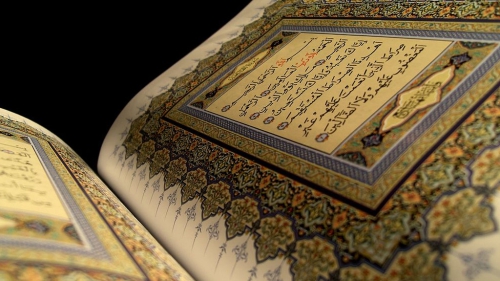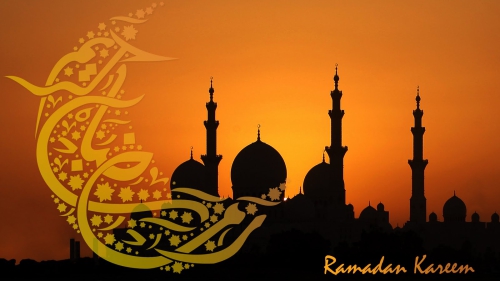Impediments in Holding onto God

There are some character traits that you must take care to rid yourself of as you strive to 'hold onto Allah'.
1. Pride
One such evil and impediment is kibr or pride. This represents the antithesis of humility and is a devastating moral ailment. The efforts which we make for tazkiya, it is hoped, will make us successful. But if one is successful, the greatest cancer that can eat everything away, is kibr. The Messenger of Allah said:
'No one will be admitted into Paradise who has even a tiny grain of pride in his heart.'
A man asked him: But what if someone likes to dress well and put on good sandals?'
He replied: 'Truly Allah is beautiful, and He loves beauty. Pride is to disdain the truth, and to belittle and despise other people.' (Muslim.)
The day you feel that you have attained something special is the day of your spiritual death. Thus, the entire effort which you make should continue to be permeated with humility. Always remember that whatever you have achieved is by the grace of Allah, not through your own efforts.
Secondly, know that the ideal for you to emulate is the uswa (good example) of the Prophet Muhammad. His example is so high and exalted: And you [Muhammad] stand on an exalted standard of character. [al-Qalam 68:4.] One of the reasons the 'ideal' standard is so high, is to ensure that we always strive to better ourselves. If the ideal is easily reachable, then once a person has attained it, he will feel content, and contentment will set him off on a downward slide. Because our ideal is high, we are always in a state of aspiration. We are perpetually in a state of effort, striving and spiritual development. Should kibr (arrogance) arise in this state, it can only be an act of Shaytan, who is there just to test whatever one has achieved in the field of knowledge or action. Kibr will destroy whatever you have achieved, so protect yourself against it. Remember that it comes in very attractive, very concealed and very deceptive channels and forms. So, be ever vigilant.
The characteristics of a Believer whose heart is free of pride and filled with ikhlas and humility are described in a hadith qudsi. Allah Most High has said:
Truly, of those devoted to Me, the one I most favour is a believer who is of meager means and much given to Prayer, who has been particular in the worship of his Lord and has obeyed Him inwardly, who was obscure among people and not pointed out, and whose sustenance was just sufficient to provide for him yet he bore this patiently.
Then he [i.e. the Prophet] rapped with his hand and said: Death will have come early to him, his mourners will have been few, his estate scant. (Tirmidhi.)
You should thus strive to become like one who doggedly keeps on working for the cause of Allah. You may not necessarily read details of him in newspaper columns, nor does he appear on television screens, nor does he win applause by making beautiful speeches in large gatherings and commendations for writing good pieces. He is not plagued by doubts. He does not waver in the face of defeat and failure. He does not calculate the chances of success but he knows very well that the only chance of success for him is to do his duty, and do it to the best of his ability. He is the backbone of the Islamic work and the Muslim Umma.
2. Hypocrisy
Another evil that destroys all that the Believer has achieved, or is trying to achieve, is knife. Nifaq entails hypocrisy, showing off, and pretending to have what one does not possess. The Prophet condemned this in the strongest terms. He said:
Whoever prays to show off, he is [a sort of] idolater, for he makes a god beside Allah; whoever fasts to show off, he also makes a god beside Allah; and whoever gives charity to show off; he too makes a god beside Allah. (Ahmad.)
He also said:
Three characteristics are the signs of a hypocrite, even if he fasts, performs the Prayer and claims that he is a Muslim: when he speaks, he lies; when he makes a promise, he breaks it; and when he is trusted, he betrays his trust. (Bukhari, Muslim.)
Hypocrisy serves only to cloud your consciousness of Allah. It is a moral ailment which eats away one's character as a moth eats away cloth. Nifaq is the opposite of ikhlas whereas ikhlas is the most essential ingredient of faith and good deeds. You should therefore assess your motives and actions frequently.
3. Pessimism
A third danger is that of qunut or pessimism. You must try to rid yourself of qunut, the feeling of hopelessness and pessimism. Allah calls qunut an act of kufr or disbelief and rejection: He says: who despairs of the mercy of his Lord, those who go astray? [al-Hijr 15: 56.]
If you have tried and failed a hundred times, your efforts would still have won incalculable gains. The feeling of disappointment and pessimism and of losing heart should never occur. The promise of Allah is true and will come to pass: And those who strive in Our way We will certainly guide them to Our paths. [at-Ankabut 29:69.] Always adopt a hopeful and positive outlook. Be an eternal optimist.
4. Uncontrollable Anger
A fourth danger is that of uncontrollable anger. Once you begin to truly 'hold onto Allah' you will find that life becomes pleasant and easy. To work for the cause of Islam becomes a joy. Inter-personal disputes, family problems and organizational problems will be resolved amicably. Most problems which persist in affecting our social relationships and organizations are due to lack of sincerity and lack of exclusiveness for Allah.
If you begin to do everything for Him, there is no need to be angry if somebody insults you since he or she cannot harm you at all. Only Allah's displeasure can harm you. Remember the words of Allah:
Never let your enmity for anyone lead you into the sin of deviating from justice. Always be just: that is closest to being God-fearing [al-Maida 5:8.]
Why should you become angry? Uncontrollable anger and unnecessary rudeness and disputes that take place are counter productive especially when you are working in a jama'a, (rightly guided group) hand-in-hand with your fellow Muslim brother and sister for the cause of Islam. Remember that we are working only to seek the pleasure of Allah. Do not ruin your good deeds by corrupting your heart with kibr and letting your nafs (soul) or selfish desires get the better of you. Identifying a practical method of controlling anger, the Prophet advised:
When one of you gets angry while he is standing, he should sit down. Then the anger [will] leave him, and if not, then he should lie down. (Ahmad, Tirmidhi.)
The Prophet also used to make dua (prayer) constantly in order to avoid negative emotions and behavior:
O Allah. Purify my heart from hypocrisy and my actions from ostentation. (Bukhari.)
O Allah, Sustain me with Your love and the love of one who loves You, and the love of that which will draw me near to Your love, and make Your love more dear to me than cool water. (Bukhari,)
There are many more Prayers and supplications of the Prophet for similar things. They are food for the soul, food for the qalb and a source of sustenance for living this worldly life, for doing business. for studying, for working, for bringing up children and for dawn. Remember, if we do things for worldly objects, these objects will perish and our own actions will also perish.
The parable of those who reject their Lord is that their works are as ashes on which the wind blows furiously on a tempestuous day. No power have they over what they have earned. That is the straying far, far [from the goal]. [Ibrahim 14: 18]
5. Abuse of the Tongue
A fifth danger is abuse of the tongue. We should be careful how we use our tongue for its misuse is the fastest way to Hellfire. Lying, slandering, backbiting and obscenity should never be part of our speech. We should be exceedingly careful with what we say about others. The Prophet said:
None of my Companions should tell me anything about anyone, for I like to meet [any one] of you with a clean heart. (Abu Dawud.)
Janna has been promised for those who are careful with their speech. The Prophet said:
Whoever can promise me that he will be virtuous with what is between his lips, and what is between his thighs; I promise that he will go to the Garden. (Muslim.)
The key to control of the tongue is to infuse our conversations with remembrance of Allah. The Prophet said in this regard:
Do not talk for long without remembering Allah, for talking much without remembering Allah is hardness of the heart. The most distant among man from Allah is one with a hardened heart. (Tirmidhi.)
6. Lustful Sexual Passions
The sixth and last impediment I wish to highlight is that of lustful sexual passions. Sex is a powerful driving force that Allah has blessed us with. In the Quran, Allah praises men who guard their sex organs [an-Nur 24: 30], and women who guard their sex organs [an-Nur 24: 31]. Despite great temptations, true Believers are able to control their sexual desires and in the process preserve their chastity.
The abuse of one's sexual organs leading to either fornication or adultery (zina) is described in the Quran as a great abomination:
Do not come near zina for it is a foulness and an evil way. [al-Isra 17: 32]
The verse warns against approaching any avenue which excites passions, opens ways for illicit relations between a man and woman, and promotes indecency and obscenity. For this reason we are advised by Allah and His Prophet to observe the following regulations:
- We should seek to get married if we are in a position to do so. The Prophet said: 'O young men! Those of you who can support a wife should marry, for it keeps you from looking at women and preserves your chastity.' (Bukhari.) If you are unable to get married, you should fast regularly for this will assist in controlling your sexual desires. The Prophet said: 'O young men! You should marry. Whosoever cannot marry should fast, for fasting will lessen his desire'. (Bukhari.)
- We should strive to control all the parts of our body not just our genitals from zina or fornication. The Prophet said: 'Every son of Adam has his share of fornication. The eyes fornicate and do so by looking. The hands fornicate and do so by touching. The feet fornicate and do so by walking [to an immoral act or place]. The mouth fornicates and does so by kissing. And the heart forms thoughts and wishes which the genitals confirm or deny.' (Bukhari and Muslim.) Thus the Prophet used to make dua continuously: 'I seek refuge in Thee from the evil which may be in my ears, my eyes, my heart and my semen'. (Abu Dawud.)
- We should avoid looking at members of the opposite sex with desire. The Prophet considered lustful looks as the 'zina of the eye', according to his saying: 'The eyes also commit zina and their zina is the lustful look' (Bukhari). He also said: 'A gaze is a poisoned arrow from Shaytan. Whoever abstains from it in fear of God shall receive from film an increase in faith, the sweetness of which he will feel in his heart.' (Musnad of Ibn Hanbal.)
- We should avoid looking at the awra or private parts of others. The Prophet forbade looking at the aura of another, whether of the same or the opposite sex, and whether with or without desire. He said: 'A man should not look at the awra of another man, nor a woman of a woman, nor should a man go under one cloth with another man, nor a woman with another woman. (Muslim.)
- We should observe the rule of khalwa (privacy). Khalwa or privacy denotes a man and woman being alone in a place in which there is no fear of intrusion by anyone else, so that an opportunity exists for sexual intimacy. Islam prohibits khalwa between a man and a woman who are outside the degree of mahram relationship. The reason for this is not a lack of trust but rather to protect ourselves from sexual temptation arising when we are alone with a member of the opposite sex. The Prophet said: 'Whoever believes in God and the Last Day must never be in privacy with a woman without there being a mahram with her, for otherwise Shaytan will be the third present [with them].' (Ahmad.)
SUMMARY
The Quran (Last Revelation of God) has laid down certain guidelines for staying on the Straight Way. The first is to 'hold on to Allah' and life's journey will be easy.
'Holding onto Allah' means that you must be grateful to Him for everything, worship only Him, love Him more than anything else, strive to become a hanif (, and make jihad (struggle) only for Him.
Likewise, be aware of the following impediments in 'holding onto Allah': pride, hypocrisy, pessimism, uncontrollable anger, abuse of the tongue and lustful sexual passions.
May Allah guide us to the Straight Way for He guides whom He wills to the Straight Way. [Yunus 10:25.]
Excerpted from "In the Early Hours" by Khurram Murad. The Author was born in Bhopal, India in 1932, and migrated to Pakistan in 1948. He studied civil engineering at the University of Karachi (Beng. 1952), securing 1st place in the University, and went on to study in the University of Minnesota (USA) (MSC.. 1958), he worked as a leading consulting engineer in Karachi, Dhaka, Tehran and Riyadh
|
In the Early Hours By Khurram Murad Reflections on Spiritual and Self Development n the Early Hours is a collection of inspirational advice Khurram Murad on the subject of spiritual and self development. |
Related Suggestions
"And certainly We sent messengers before you: there are some of them that We have mentioned to you and there are others whom We have not mentioned to you..." [Qur'an 40:78]
"For We assuredly sent amongst every People a messenger..."[Qur'an 16:36]
Five are accorded the highest reverence for their perseverance and unusually strong commitment to God in the face of great suffering. These five are Noah, Abraham, Moses, Jesus and Muhammad. This is every Muslims belief not because of modern day archeological/scientific evidences (as they are fallible and evolving) but because Allah has said so (Allah is the Absolute Truth). Muhammad came with the creed (1) there is no God but Allah - (this puts right the concept of God Prophet Jesus brought but were altered by the christians, and (2) Muhammad is the messenger of Allah - (being a non judaic, this other half of the creed shatters the jews belief of being the chosen people conclusively!
With regards to the Quran, the same one version is still preserved not only in the hard copy format, but also wonderfully preserved in the minds of the millions of "Hafiz" or memorizer that never stop existing to this day, all over the world--many of them non-Arabic speakers. The Quran that a Muslim in Indonesia reads or memorizes is the exact same scripture as one which a Muslim in Mauritania reads or memorizes, today and yesterday. This is the phenomenon God mentions in the Quran, when He says what means [We have, without doubt, sent down the Message and We will assuredly guard it (from corruption)] (Quran 15:9).
Over the last couple of months I've refrained from writing a response challenging Islam its self but that's exactly what you two did to Christianity and last Thursday, in England an idiot blew himself up because a homicidal guy in a Gandalf costume told him to, so I'm not in one of my most pro Islamic moods right now! The rest of what I have to say will challenge Islam altogether, so if you don't want to read it don't scroll down and do just that, you can't blame me if you decide to continue.
There is plenty of evidence proving that at least some of the Hebrew prophets really did exist(whether they really were prophets or not is another story) and also that they lived in Israel. But there is not even the remotest trace of evidence to suggest any of them were actually from Mecca. If they were, why were they forgotten about in their homeland but remembered in other countries and why did non of the Arabians have the names of these supposed forefathers like they did when the prophet Muhammad came along.
You call Inchdeep prejedice and ignorant only to begin talking about Christianity with prejudice and ignorance.
Thank you for your baseless comment. The current Bible is a compilation of four conflicting accounts of Jesus'(Peace be upon him) life as remembered by Mark, luke, John etc. These were written more than 100 years after Jesus' departure from this world. These 4 men were heavily influenced by Paul's doctrine, the founder of trinity (that is why only these four gospels were selected out of many). The original revelations and scripture have been long lost. Bible in it's current state can hardly be described as the "True" word of God. The Quran was revealed to Prophet Mohammad (Peace be upon him) through Angel Gabriel. It has been preserved word for word and to date not a single letter has changed. This is the true final revelation. You don't have believe in it, as we will find out soon enough. Whatever you say does not alter the truth. Please make better use of your time. Thanks.
TO INCHDEEP: your IGNORANCE and PREJUDICE led you to write what you wrote in your comment. Quran does not borrow from bible, which is changing every year thanks to your priest or pope or whoever writing by their own hand, and they are borrowing from Quran which is real Word of God. Acquire little courage and read the Quran by yourself so that you may see some light like many so-called christians have seen light after reading Quran and contemplating about it. Why dont you do the same and then we can talk about both bible and Quran. Peace!

















